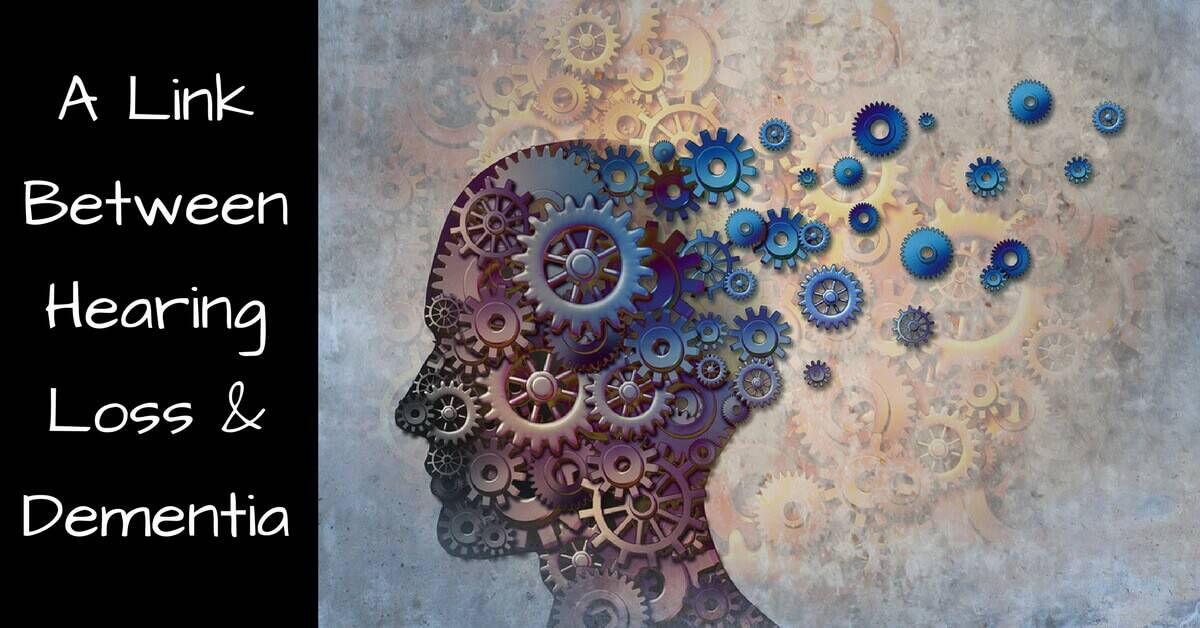Hearing loss affects close to 50 million Americans, according to the Hearing Loss Association of America. By the time Americans reach the age of 70, nearly 2 in 3 will have hearing loss, but this hearing loss affects the brain in profound ways. For these people, hearing loss affects much more than just their ability to follow conversations and has some far-reaching consequences. “The general perception is that hearing loss is a relatively inconsequential part of aging,” says Frank Lin, an otologist at the Johns Hopkins University in Baltimore. However, those with hearing loss are more prone to falls, accidents, and stress related illnesses. Did you know that those with hearing loss also have an increased risk of suffering from cognitive impairments and developing dementia?
Are Hearing Loss and Dementia Linked?
Lin has done a lot of research into the links between hearing loss and dementia, and in one study published in 2013, he examined how hearing loss affects cognitive functioning such as concentration, memory, and planning. He found that those with severe hearing loss were 24% more likely to have cognitive impairments. Lin found that hearing loss speeds up normal cognitive decline, so that those with hearing loss notice a much greater drop in cognitive function compared to their hearing peers. In another study, Lin found that the worse the hearing loss, the more likely a person was to develop dementia, and those with moderate hearing lose were three times a likely to develop dementia.
What Causes the Link Between Hearing Loss and Dementia?
While we don’t know exactly how hearing loss and dementia are linked, Lin has a few theories. One theory has to do with cognitive load. Basically, all the stress you put on your brain straining to hear takes a heavy toll, as your brain isn’t able to keep up with the high workload. For example, brain power that should be used to process what’s been said or to understand the meaning by encoding information is all used up just trying to hear the words. There is also less capacity for all the other tasks your brain has to do.
Another theory has to do with communication. When you suffer from hearing loss, you struggle to participate in conversations, and often feel left out. You may start to stay home from social events, rather than face the embarrassment of not being able to communicate easily with your friends. This breakdown in communication leads to social isolation that has a negative impact on your mental health and wellbeing, as well as further reducing your cognitive abilities.
The last factor that could link hearing loss to dementia is that hearing loss may be changing brain structure in a way that leads to more rapid cognitive decline. Parts of the brain that aren’t being used often are prone to shrinking. Brain scans have shown that adults with hearing loss have much less gray matter in their brain that those with normal hearing. This could be part of the reason those with hearing loss are also experiencing cognitive decline and have a higher risk of dementia.
Treating Hearing Loss
Just because you have hearing loss doesn’t mean you’ll get dementia. Living with untreated hearing loss increases your risk of cognitive decline, but treating your hearing loss improves cognitive function and lowers your changes of developing dementia. A study in Paris by Isabelle Mosnier of the Assistance Publique-Hopitaux followed 94 adults who had profound hearing loss. All received a cochlear implant to treat their hearing loss, and more than 80% of them improved their cognitive function scores drastically in the first year with the implant.
The Good News
The good news about this link between hearing loss and dementia is that this gives hope for reducing the rates of dementia in seniors. Since treating hearing loss has been shown to slow the progress of dementia in adults with hearing loss, hearing aids could be the answer to lower the number of adults struggling with this degenerative disease.
If you have hearing loss, don’t wait any longer, but seek treatment right away! You’ll be doing more than rediscovering all the sounds you haven’t heard in years, you’ll also be doing the right thing for your brain, reducing cognitive decline, and reducing your risk of developing dementia. Visit us at Hearing Wellness Solutions to take the first step in your journey to great hearing and brain health.

